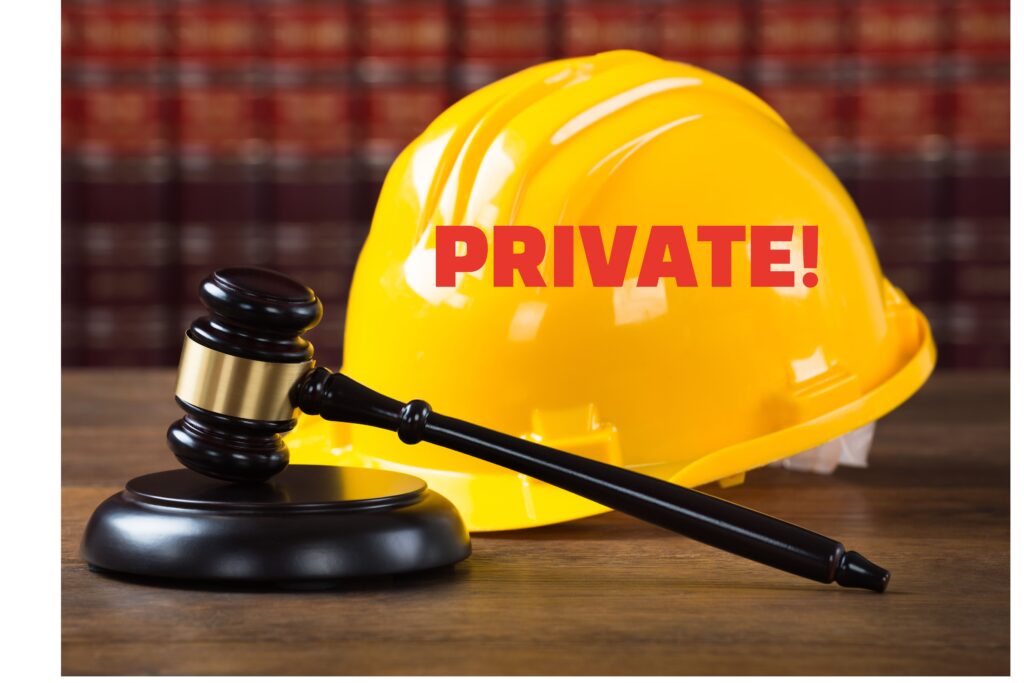By Leslie O’Neal
Process Combines Arbitration’s Flexibility and Litigation’s Procedural Safeguards [i]

Most experienced construction attorneys are familiar with binding arbitration as an alternative dispute resolution (ADR) method. Some attorneys and clients are wary of binding arbitration because neither the Florida Rules of Civil Procedure nor the Florida Rules of Evidence apply in most arbitrations and there is no right of appeal from an arbitration award.[ii]
Arbitration is a flexible process, allowing the parties to determine when the arbitration hearing will occur, rather than being subject to the vagaries of a state court trial docket. Also, the parties choose arbitrators because of their expertise in the specific area of law and issues involved in a case, while state court judges are randomly assigned and are usually generalists.
Florida’s Private Judge Statute
What if there were a process that provided the procedural benefits of a state court trial, but allowed the parties to select a decision maker with experience in the particular area of law involved? What if parties controlled scheduling the hearing? You may be surprised to learn that Florida Statute §44.104[iii] provides this process. The parties to an eligible civil dispute may file a motion to refer their case to “voluntary trial resolution” by a private judge (who need not actually be a “judge”). Also, the parties can request the Florida Rules of Civil Procedure and the Rules of Evidence apply to the hearing and reserve their right to appeal. The voluntary trial judge may issue oaths, subpoenas, and orders compelling witness appearances.
Selecting the Voluntary Trial Judge
The parties can select the private adjudicator based on criteria important to their dispute, such as legal and subject matter expertise, prior judicial experience, or immediate availability. Although the only statutory requirement for a “voluntary trial judge” is to be a member of The Florida Bar in good standing for five years or more, [iv] management of a complex construction case requires a decision maker with sufficient knowledge and sophistication to rule fairly and insure procedural due process. There are many retired judges and attorneys with the training and experience needed to serve as private judges. Once the parties agree on a voluntary trial judge, they file an application in the court to have the judge appointed. The trial judge must approve the application [iii]. The parties and the voluntary trial judge enter into an agreement regarding the scope of the assignment, compensation and other terms.
Case Management
Once appointed, the “trial resolution judge” or “voluntary trial judge” takes over the case, holds a trial and renders a final decision. The statute is silent about jury trials, but the administrative orders from the Florida 6th judicial circuit https://fljud6.org (2005-053 PA/PI-CIR and 13th judicial circuit http://fljud13.org (S-2001-027) regarding voluntary trial resolution include discussion of jury trials. After the trial, any party may file a petition in the circuit court for entry of final judgment. Once a judgment has been issued, any party may appeal to the appropriate appellate court. Factual findings are not subject to appeal. (Fla. Stat. §44.104(11). If no appeal is taken the court may enforce the final judgment through its contempt powers and parties may request issuance of execution on the judgment. (Fla. Stat. §44.104(13)).
Limitations on the Process
This process is not available for all types of disputes: family matters and cases presenting constitutional questions are excluded. However, where the statute applies, there are no apparent limitations on the type of relief that can be granted. Case law and other authorities indicate that claims for injunctive relief are included under the statute.
Takeaways
Voluntary trial resolution using private judges is gaining popularity, particularly for large, complex construction matters, which state court judges are sometimes reluctant to schedule on overcrowded trial dockets. It’s an interesting option for construction lawyers to consider for appropriate cases. Check with the clerk of the circuit court in the relevant jurisdiction to review the local rules and orders and to coordinate the process. Future posts will feature interviews with some “private judges” and with attorneys who have used the process.
[i] Thanks to JAMS neutral, Patricia Thompson, who introduced this topic to me. This post is adapted from an article we co-authored, Best Practices for Private Dispute Resolution Under Section 44.104, Florida’s Voluntary Arbitration Statute, The Common Ground (Florida Bar ADR Section, Fall-Winter 2023) http://flabaradr.com. See also, Richard E. Brodsky, Private Judging in Florida: Useful in Business Cases? 90 Fla. B. J. 51 (April 2016). https://www.floridabar.org/the-florida-bar-journal/private-judging-in-florida-useful-in-business-cases/. This post discusses Florida’s private judge statute. Future posts will discuss similar statutes in other jurisdictions.
[ii] The Federal Arbitration Act (9 U.S.C. §10) (https://www.govinfo.gov) provides the grounds for vacating an arbitration award: (1) the award was procured by corruption or fraud; (2) there was evident partiality or corruption in the arbitrators or either of them; (3) the arbitrators were guilty of misconduct in refusing to postpone the hearing, upon sufficient cause shown, or in refusing to hear evidence pertinent and material to the controversy; or (4) the arbitrators exceeded their powers or so imperfectly executed them that a mutual, final and definite award upon the subject matter submitted was not made. Section 682.13, Fla. Stat. (2024) (the Florida Arbitration Act) (https://www.leg.state.fl.us) contains similar grounds and the additional grounds of: (1) there was no agreement to arbitrate unless the party participated in the arbitration proceeding without raising the objection not later than the beginning of the hearing and (2) the arbitration was conducted without proper notice of initiation of an arbitration so as to prejudice substantially the rights of a party to the arbitration proceeding.
[iii] Fla. Stat. §44.104(2) states, “in voluntary binding arbitration at least one of the arbitrators, who shall serve as the chief arbitrator, shall meet the qualifications and training requirements adopted pursuant to Section 44.106.” Rule 11.020, Florida Rules for Court-Appointed Arbitrators requires arbitrators to be members of The Florida Bar and to attend four hours of training in a program approved by the Supreme Court of Florida; however, parties may use arbitrators who have not completed the training. Former Florida trial court judges may be exempt from the training.
[iv] The trial judge has no discretion to deny the parties’ application for a voluntary trial resolution judge. In Community/Condotte/De Moya JV v. Circuit Court Judge, 325 So.3d 218 (Fla. 3d DCA 2021) https://casetext.com/case/communitycondottede-moya-jv-v-circuit-court-judge, the appellate court issued a writ of mandamus requiring the trial court to enter an order appointing the voluntary trial resolution judge the parties requested.

